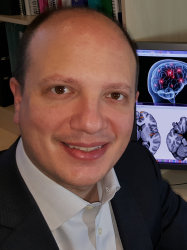BibTex format
@article{Thurston:2022:10.1172/JCI152341,
author = {Thurston, L and Hunjan, T and Mills, E and Wall, M and Ertl, N and Phylactou, M and Muzi, B and Patel, B and Alexander, E and Suladze, S and Modi, M and Eng, P and Bassett, P and Abbara, A and Goldmeier, D and Comninos, A and Dhillo, W},
doi = {10.1172/JCI152341},
journal = {Journal of Clinical Investigation},
pages = {1--12},
title = {Melanocortin 4 receptor agonism enhances sexual brain processing in women with hypoactive sexual desire disorder},
url = {http://dx.doi.org/10.1172/JCI152341},
volume = {132},
year = {2022}
}

